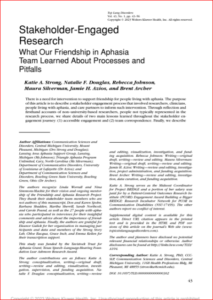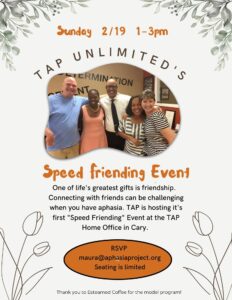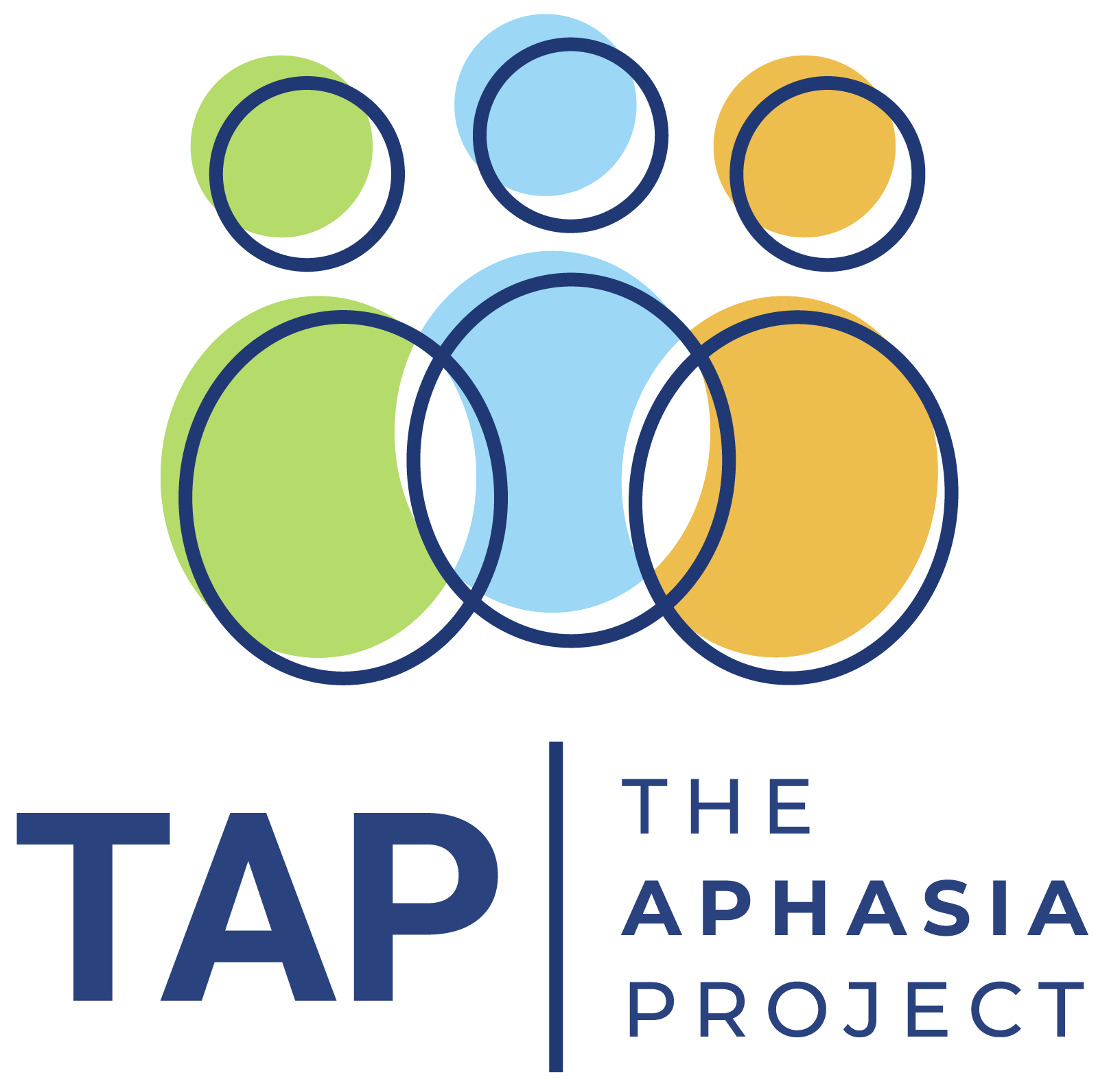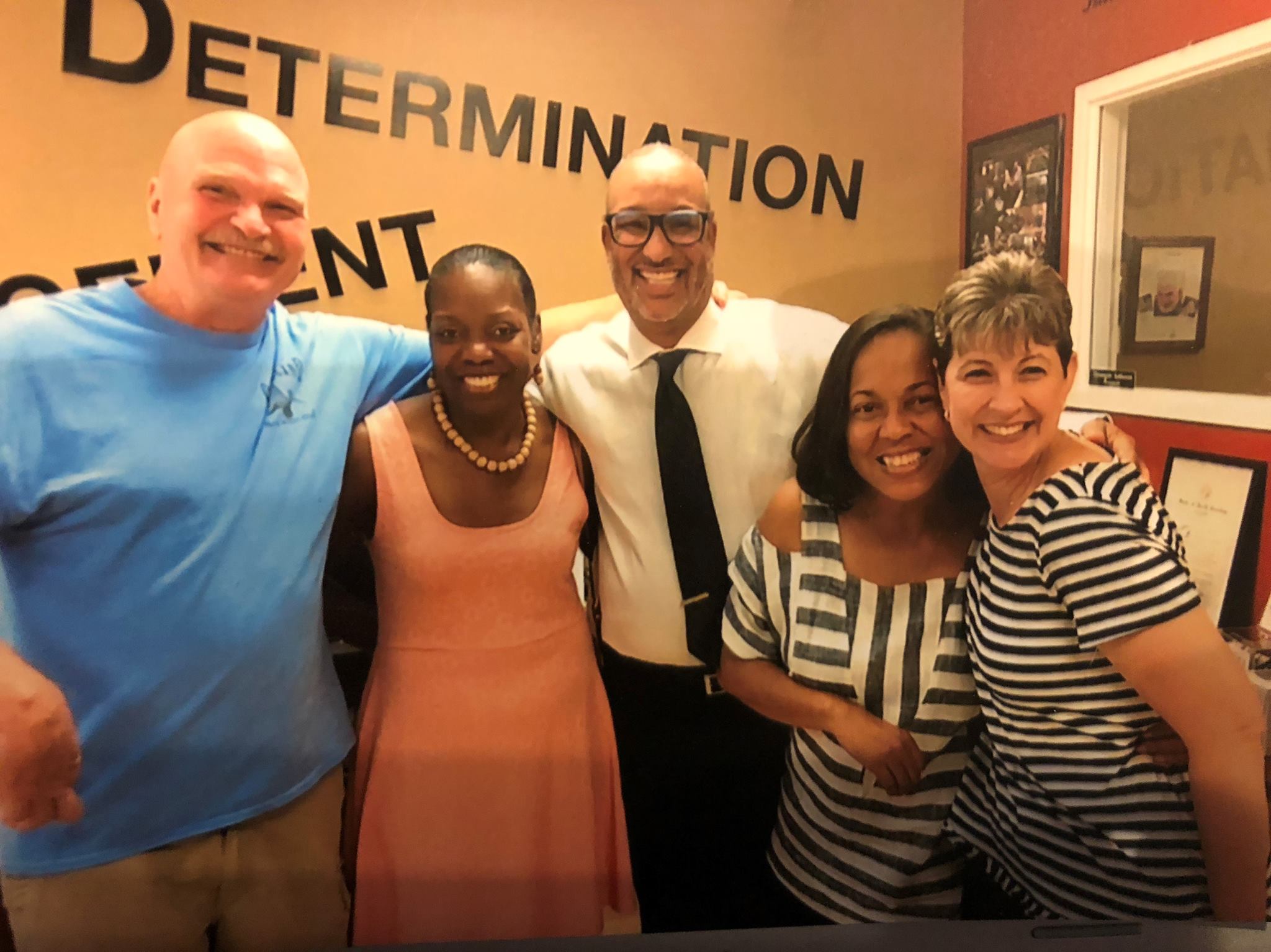“My friends…where?”; “Friends, no…gone!”; “Can’t talk…bye, friend…lonely.” Speech Language Pathologists working with individuals with aphasia have heard these phrases suggesting that their communication challenges have negatively impacted their ability to maintain friendships or make new friends. Aphasia and other physical challenges that result from stroke or other brain injury can change the social life, vocational and avocational pursuits of the person and subsequently…may limit their ability to stay engaged with relatives, colleagues and yes, their friends.
This situation is complicated and confusing for all involved. The individual with aphasia may initially receive an outpouring of support, well wishes and the common “let me know if I can do anything” messages. But as they progress through their medical journey and physical rehabilitation course, these supporters return to the demands and activities in their own lives. Friends may remain available to assist the family or visit with the person with aphasia, but then the communication barrier comes into play! Watching someone you care about struggle to express themselves or being unsure if the person understands what you are saying can result in discomfort, awkwardness and even disengagement. There is no evidence that this backing away from the relationship is malicious in any way, rather the result of communication breakdowns, a lack of education/awareness and concerns over imposing frustration onto the person with aphasia.
Friendship, though, is a vital part of life participation and valued as a part of one’s identity. It is also critically linked to quality of life, satisfaction and well being. So, what to do? How do we change the trajectory of disengagement and encourage friends to stay connected?
Throughout 2022, I have had the immense pleasure to participate in an important project relating to Friendship. The effort, referred to as Stakeholder-Engaged Research, sought to identify and investigate friendship goals and priorities and how each person may be invested in the process. We worked with researchers, clinicians, people with aphasia, and carepartners ways to make a true difference in the lives, and friendships, of persons with aphasia. We discussed social networks, research processes and how to be authentic and inclusive in our methods of intervention. All of this simply means that every person has a role in studying the impact of aphasia! The disability community has a wonderful saying “Nothing for us, without us”… we must listen and collaborate to the true experts…people with aphasia.
TAP Unlimited is following this prescription and developing opportunities for our clients to discuss friendship and what barriers they notice within their journey. Some of the recommended interventions so far include: family/friend training or attendance at Learning to Speak Aphasia; materials/communication supports to bring along when they engage with friends; social outings at restaurants, parks, etc. and specific “friending” events.
Speaking of friending… TAP Unlimited is hosting it’s first “Speed Friending” event at our home office in Cary this coming Sunday (2/19) from 1-3pm. There are limited seats so RSVP if you want to join us!
Article: Strong, Katie A.; Douglas, Natalie F.; Johnson, Rebecca; Silverman, Maura; Azios, Jamie H.; Archer, Brent. Stakeholder-Engaged Research: What Our Friendship in Aphasia Team Learned About Processes and Pitfalls. Topics in Language Disorders 43(1):p 43-56, January/March 2023.



